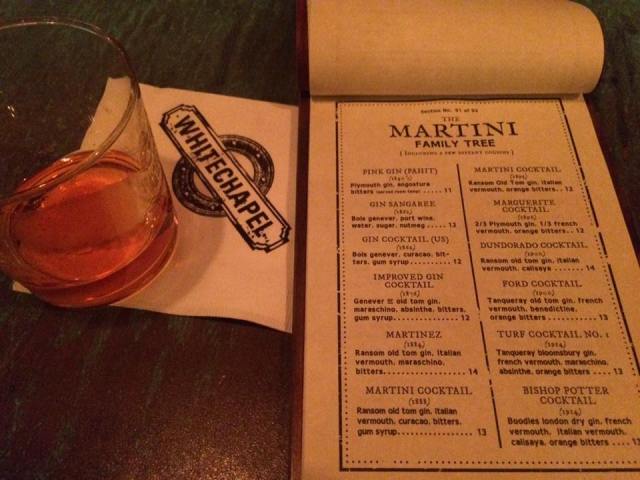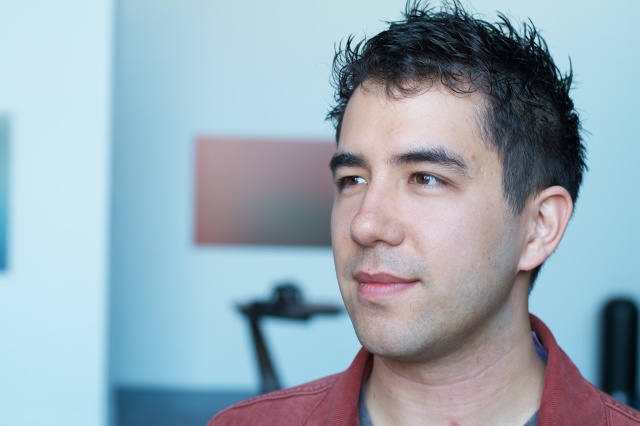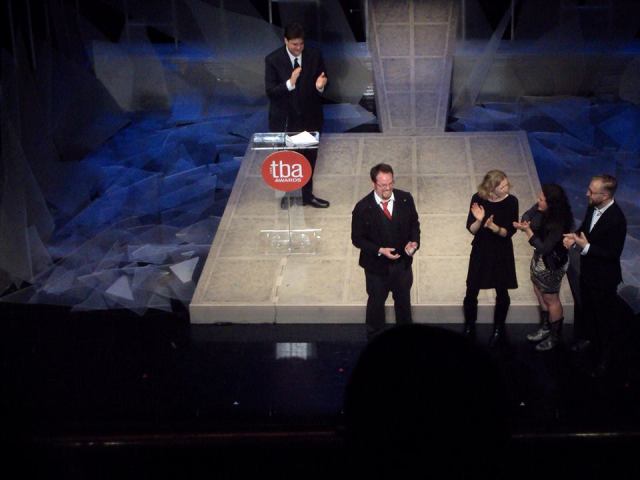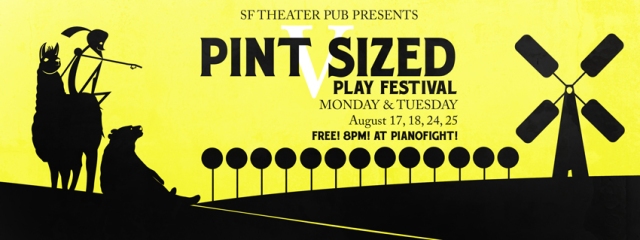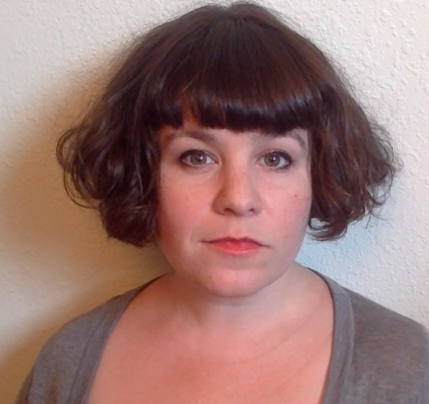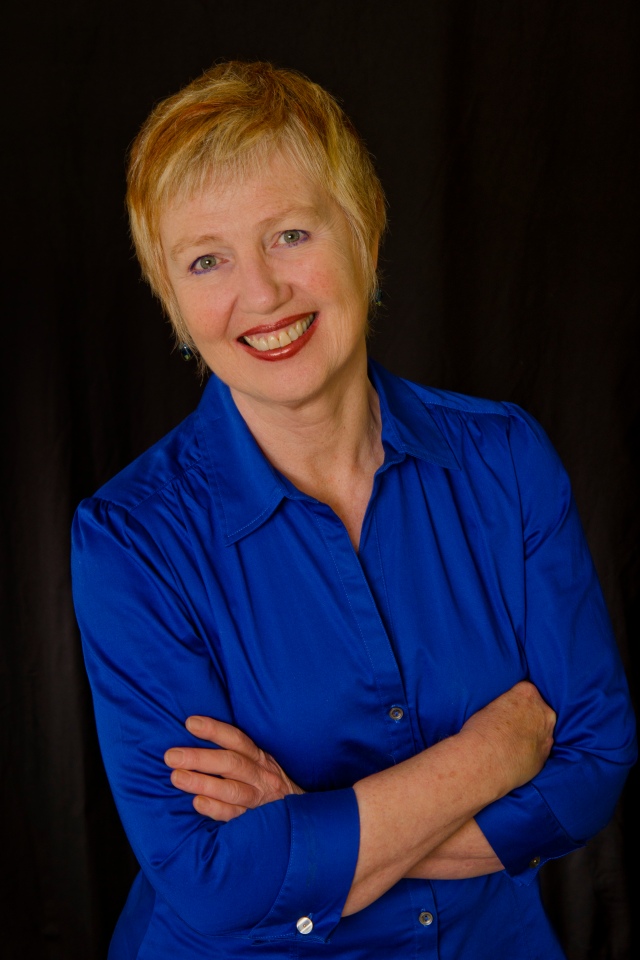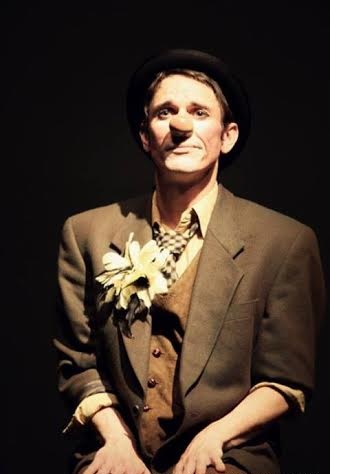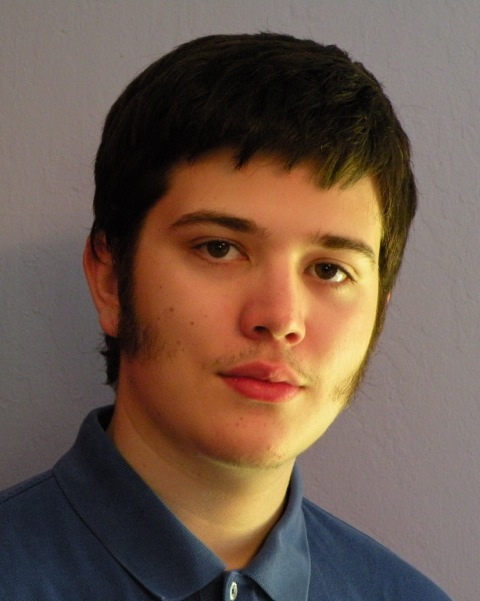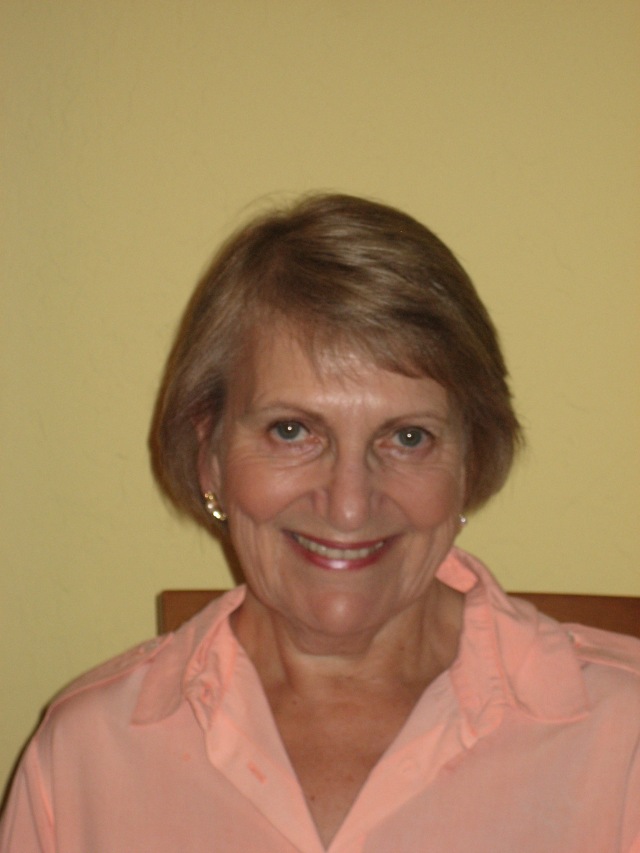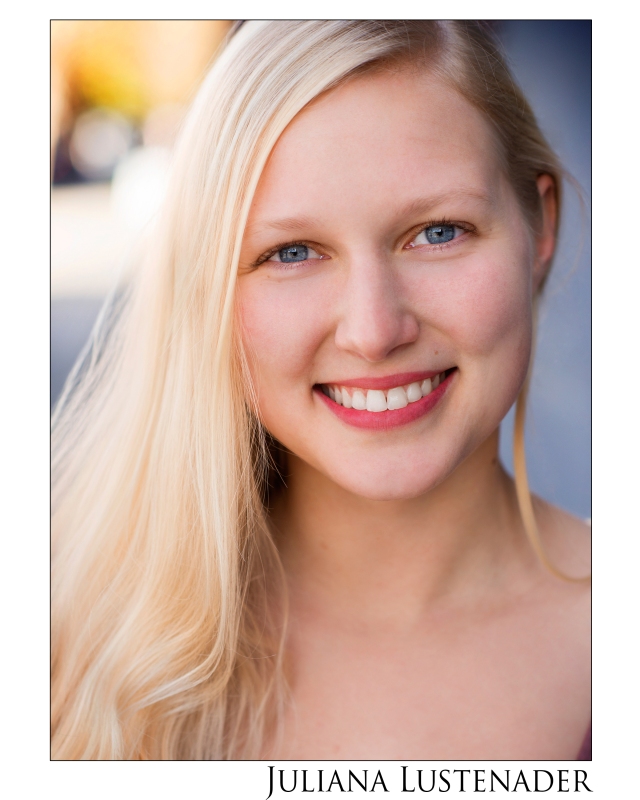Stuart Bousel ends the year with 6,000 words. Which you know… is actually less than usual.
You may not have noticed it, but until my recent interview by Barbara Jwanouskos, I took a year off from writing for the blog.
This was for a number of reasons, including wanting to make more space for others, and having to use some of our space for promoting shows since Theater Pub returned to putting out 12 shows a year, thanks entirely to Rob Ready, Dan Williams, and Kevin Fink at PianoFight for both providing and insisting we take them up on their offer of a new venue, and my incredible support staff who put this year together by the skin of their teeth: Megan Cohen, James Grady, Sara Judge, Cody Rishell, Marissa Skudlarek, and most of all Tonya Narvaez and Meghan Trowbridge. Additionally, I just kind of took a general break from both writing and publicly postulating, partly for my own sanity and mostly because I wanted to do a lot of listening. At the end of last year, as was apparent to many, I was sort of drowning in the overwhelm of too many voices, from adulatory to disparaging, plaintive to dismissive. I made a decision to stand still and listen, in the hopes I’d eventually find my way back to my voice. For the record, it worked, thanks in large part of a few really good friends- but more on that later.
So, Awards… do I feel better about them than I did last year? Eh, more or less. I’ve come to accept them for what they are, and I’m thankful we have an awards system, helmed by Theater Bay Area, that is more or less transparent, and based on a peer adjudication pool that is more or less quantifiable (certainly identifiable), tiered into a system that more or less recognizes the need to evaluate artists with their resources and limitations taken into account. I think it’s a tremendous loss that Robert Sokol, who did the bulk of the grunt work to make these Awards a reality, from vetting each ballot last year to making the rounds of every committee to ensure the concerns of TBA members were actually heard, is no longer with the Awards or TBA- and anyone who knows how hard I grilled Robert in meetings last year knows that I am not saying that lightly or affectionately. There are moments I have starred daggers into Robert across a conference table and meant each and every one of them, but at the end of the day, he brought a great deal of integrity to the Awards- as much as any awards system can have- and he was devoted to them and he has not been adequately replaced. Which is not to say the folks running things now are doing a bad job necessarily- but the job changed and nobody has really moved into his place, duties have just been sort of parceled out, and while I don’t feel this has necessarily compromised the integrity of the Awards themselves, yeah, some things and people are falling through the cracks. Like my whole committee, for instance, which was given no chance to have input on the Awards this year. But then, being forgotten is, sadly, sort of par for the course of the Individual Services Committee.
Speaking of… so I have left the ISC and the Board of TBA. It happened weeks ago, right after the last meeting of the year, so I feel like it’s okay to talk about it publicly now. Or if it’s not, well… somebody should have sent me an email about that. Oh well.
Anyway, yes, I stepped down. After three years on the ISC- which I loved- and one year on the Board- which I hated every second of- I decided that TBA and I were not a good fit for one another. This does not mean I think TBA is a bad organization or anything like that- I am still a member, as is San Francisco Theater Pub, and I believe that TBA has the potential to be a great service organization and an ally to the artists of the San Francisco Bay Area Theater scene, and an advocate for the arts in general. In some ways, it already is all of those things. In some ways- it’s got a long ways to go, and to TBA’s credit no one there is unaware of that and there is a lot of energy being expended in trying to improve. In the end, my decision to leave is a combination of many things, like all decisions, but it comes down this: the organization’s priorities are not my own, and while I joined the org in a volunteer capacity to understand it better, I also wanted to help create positive changes in the Bay Area theater scene. And the fact is, I wasn’t really being tapped for that, despite having been invited in. Boards are really all about raising money, when it comes right down to it. And like, I get that. But I’m an artist. A Struggling Artist. I got enough of that headache in my life already, you know?
So, hey, everybody, back to Awards as subject (and yes, don’t worry, the Stueys). Clearly I had some really heavy misgivings about whether or not I was, through well-intentioned silliness, perpetuating this kind of social ill, something I had never really thought about until I started winning awards myself, and experiencing all the highs (random theater companies suddenly being interested in my writing, feeling validated by my peers) and lows (friends telling me all the reasons I didn’t deserve recognition, or just sucked in general) that come with success of any kind. This year I was nominated for two more awards, and a show I directed was nominated for nine total, and I didn’t win any and neither did the show and you know what: I kind of enjoyed it more. Yes, I loved winning last year- I ADMIT IT. But not winning (which is not the same as “losing”, by the way) meant I could get drunk with my friends and dance and kiss people at the party and not worry about what this all meant and was I worthy and was I accidentally doing anything to offend all the people who didn’t win, and was I supposed to react a certain way and what if I did or didn’t? Plus some people I really adore and respect won awards this year and that was lovely because they deserve recognition.
Which by the way is all an award/Award is- some people saying you did a good job. Which only means something if you think it does. And if you think you did a good job.
Cut to me, having drinks with a local writer whose brain is my favorite critical brain in the Bay Area and at some point she says/I paraphrase, “I’m so glad you have made peace with all that. You do so much and you do it well and it is okay to be proud of that- and haters be damned.”
I reply/paraphrase, “Thank you. I am a deeply insecure human being in an industry that battens on insecurity. And I don’t know if I’ll ever be able to say, with assurity, that I deserve anything, let alone an Award. But I am glad that play won one, because all said and done- I am really proud of that play.”
The Bay Area Theater Scene, friends/haters. So much insecurity. So much to be proud of.
The 2015 Stuart Excellence in Bay Area Theatre Awards
1. The Peter O’Toole Award For General Awesomeness- Dale Albright
True story: a couple of weeks ago I was a few egg nogs in and chatting with a co-worker while net surfing and lazily, without thinking, reposted Peter O’Toole’s death notice on Facebook, as if it was news. How embarrassing! Especially as I created this award the year Peter died (the first time) with the idea that it would be all about recognizing the people we often fail to recognize because they are so consistently awesome. Way to prove my own point, huh? Well, regardless, I couldn’t be more earnest this year when I give the award to Dale Albright, who may be the Bay Area Theater scene’s most unsung, unsung hero (he is the Program Director for TBA, if you didn’t know). Seriously, this man is earning his keep and then some and I would not have spent three years giving up my time if it wasn’t for Dale’s passion and commitment to TBA and everything it is and could be. And sure, he’s also a damn fine actor and director, but whatever: he a phenomenal human. He really and truly cares, he works himself to the bone on our behalf, and he does it all with a kind of insane but sincere modesty. No one I have ever spoken to about Dale has anything but incredible admiration for him and I’m not talking about a handful of people- I’m talking about hundreds of them. I know a lot of people.
2. Best Short Play- “Sparse Pubic Hair” by Lorraine Midanik, directed by Laylah Muran de Assereto, produced by the Playwrights’ Center of San Francisco, starring Rick Homan and Miyoko Sakatani with Louel Senores and Amber Glasgow, choreography by Wesley Cayabyab.
It’s always kind of funny what really makes a short play work and stand out. It’s usually this nearly impossible combination of big idea, simple but impactful execution, and charm. This piece, the capper of the last-ever Sheherezade Festival (PCSF’s annual short play collection) took the complex idea of aging and becoming obsolete and all the insecurity and fear attached to that, and reduced it to the very concrete but relatable fear of losing one’s sex appeal before one has lost the appetite for sex, without falling into the traps of being preachy, cutesy, smarmy, or vulgar. The result: an actually romantic, totally poignant tale of two grown ups having to learn how to be grown ups long after they thought they were done learning to be grown ups, complete with facing fears, getting over themselves, and forgiving one another’s human fallings- sparse pubic hair and all.
3. Best Show- “The Miraculous Journey Of Edward Tulane”, adapted by Dwayne Hartford from the book by Kate DiCamillo, directed by Doyle Ott, produced by the Bay Area Children’s Theatre, starring Terry Bamberger, Darek Burkowski, James Grady, Carlye Pollack
Okay, if you didn’t know it, some of the best theater being made in the Bay Area is consistently being made by Bay Area Children’s Theatre. Yes, it’s intended for kids and yes you will be looked at by amused/hyper-protective parents if you don’t show up without your own children, but the fact is, there’s some really excellent stuff happening here, high-quality entertainment being made and you’re probably missing it. Because it’s made for kids it’s also, in addition to being well done, often edifying and thought-provoking without hitting you over the head about it the way a great deal of theater for adults feels it needs to. The stories are also just unapologetically magical, because kids both believe in magic, and unlike most adults, feel no shame in admitting that or owning their need for it. No show, for me, better optimized this this year than “Edward Tulane”. Beautifully acted from top to bottom, gorgeously staged and directed as a kind of caravan theater meets medieval panto mash-up with songs, the tale of a toy that passes through many owners, becoming something uniquely valued by each, was FUCKING TEARING MY HEART OUT EVERY SECOND I WAS WATCHING IT. I barely held it together, my boyfriend cried continuously from twenty minutes in till the end, and we walked out wanting to make the world a kinder place. The restorative powers of forgiveness and the transformative aspect of service being subtley but unapologetically presented as the inevitable solutions to anger and vanity were so well nuanced that it was impossible to remain unmoved by a piece that comforted even as it kicked you in the face. And yeah, not all theater has to make you do that- but your chances of getting a Stuey are way higher if your theater does.
4. Best Ambitious Failure- “We Are Proud To Present A Presentation About The Herero of Namibia, Formerly Known As Southwest Africa, From the German Sudwestafrkia, Between the Years 1884-1915” by Jackie Sibblies-Drury, directed by Molly Aaronson-Gelb, produced by Shotgun Players in association with Just Theater, starring Rotimi Agbabiaka, Lucas Hatton, Kehinde Keyoejo, Patrick Kelly Jones, David Moore, and Megan Trout.
Okay, before anyone gets offended please understand: I love Ambitious Failures, and no it’s not a backhanded compliment. In many respects, while I love a perfect gem of a show and it’ll make me love the world and theater, an ambitious failure gets me excited and makes me think in a way that gems big or little often fail to do. Also, it’ll stick with me for a long time to come, resulting in multiple conversations, extra mileage in the idea mill, good debates, etc. “Well then,” you say, “is it really a failure?” I mean, I guess not- but yes, no, it didn’t work, at least for me. And like, this show totally didn’t work for me, I walked out feeling I had seen something that couldn’t actually decide what it was trying to do or say and collapsed in on itself like a whirlpool that was more interesting than engaging, but oh how much I admired the fearlessness and commitment of the script, the actors, the director, whoever it was who had to make that title work on a poster. I knew I had seen something important and real, even if I had failed to get much out of it beyond what I felt was obvious and a result of statement, not storytelling, but the parts that sang, sang so well that I could not be dismissive either. In many ways, I felt the play was epitomizing its own impossible conversation, that its hot messiness was a statement about how no one in the world seems to be qualified or articulate enough to truly communicate with anyone else in the world AND THAT’S WHY WE’LL NEVER HAVE NICE THINGS… but then that reading doesn’t satisfy me either and the play didn’t corroborate it and I was back at square one feeling like I was asking aesthetic questions instead of struggling with the plethora of social ones the play was ostensibly about. It’s frustrating… but intriguing, and it has kept me intrigued. This is the one show from this year I would see again, if I could, no caveats. And that deserves a Stuey.
5. Best SF Olympians Reading- “Tethys/Oceanus” by Marissa Skudlarek/Daniel Hirsch and Siyu Song, directed by Marissak Skudlarek/Sara Staley, starring Diana Brown, Alan Coyne, Theresa Miller, Jacinta Sutphin, Aaron Tworek, Kendra Webb, Steven Westdahl, Janice Wright
So, usually I do a “Best Reading” award but every year I’ve chosen something from Olympians (because it’s where readings go to ascend) so let’s just call a spade a spade and admit I’m really going to just pick the best Olympians reading from the past year. This year was a strong year for the festival, and there was a lot of good material, but one night shone above the rest in terms of great material + perfect performances + random magic, and that was a pair of one acts, “Tethys” by Marissa Skudlarek, who also directed, and “Oceanus” by Dan Hirsch and Siyu Song, directed by Sara Staley. Between the two pieces the evening was the perfect blend of somber intellect (Marissa’s) and giddy theatricality (Dan and Siyu’s). Marissa’s quiet and subtle piece about defining and obtaining security in a perilous world was beautifully echoed in Dan and Siyu’s mini-epic about what happens in the handful of moments during an global internet outage when all of our distractions vanish and we’re forced to listen to the sound of our own lives again. Both had a wicked humor tempered with compassion for the stories being told and the characters portrayed were done so by an excellent group of actors clearly relishing their roles. Like all “best nights” of the Olympians, I walked out of that one going, “This is what this festival can do- this is the kind of stuff that happens here!” which makes for such an easier time at the bar afterwards. And while the object of the festival is not to create a final product but to instead be the start of a journey, both these plays felt like they could be lifted and fully produced as was- which only makes me more excited to see where they will go.
6. Best Director- Ariel Craft, “The Pillowman”, The Breadbox
“Really? Ariel again?” you ask me. Um, well, what can I say- I’ll stop saying Ariel’s the best director in the Bay Area when she stops being the best director in the Bay Area. Or at least when she wins a TBA Award. No, but seriously, Ariel continues to win my admiration for a combination of reasons: she is not only exceptionally skilled and incredibly hard working, but she consistently chooses incredibly challenging work and sometimes does exceedingly risky things with it and sometimes those things fail but it never seems to stop her from trying again- and usually shooting even higher. Pillowman was not a failure but was, in fact, the best production of this play I could possibly imagine. Each individual part and performance was spot on- but the sum of the whole was brilliant and that is Ariel’s great strength. Her vision has a signature that is unmistakably hers, making her unquestionably an artist, and as she continues to grow it’s becoming more and more exciting to see her hallmarks across a variety of works. Best part: I don’t even really like this play all that much. But I loved this production of it.
7. Best Actor – Jason Wong (Creon, “Antigone”, at Cutting Ball)
Jason Wong has always been an interesting and very watchable actor, and having known him and worked with him before, I also know he’s a pretty nice guy, hard-working, risk-taking, and smart. Very smart. It sort of killed me when he didn’t try out for my production of M. Butterfly (though I would never trade the brilliance of Sean Fenton in that show FOR THE WORLD), but he’s forgiven now for having been the jewel in the crown of Cutting Ball’s production of Antigone. Though the heroine of the story is the center of the piece, Creon is the meat of the drama, his arc the one we follow, his lesson the one that must be learned, his soul the one that must be broken and, if you’re Creon is well-played, redeemed. Jason walked on stage chewing the scenery like a madman, spilling Creon’s pompous but phony self-love all over the place and then slowly, systematically, cracking the façade one doubt and disaster at a time until he was just bones and then just a pile of bones. Ending the play as a forlorn echo of himself that you wanted to protect in spite of everything, you realize that Antigone has triumphed and the tragedy has and always was Creon. Jason, with his remarkable ability to play wounded and outraged at the same time, took me from sinister to pathetic so forcibly but fluidly that like the proverbial frog in a cauldron, I almost didn’t feel the burn until I was suddenly, fataly, scalded.
8. Best Actress- Michelle Drexler (Kathy, “Company”, SF Playhouse)
One of the advantages of seeing a play many times (and I have seen Company many many times) is that you can see a variety of actors tackle a role and approach its pros and cons differently, with different levels of success. Most people who see Company will walk away having an opinion on the Robert, the Joanne, the Amy, maybe the Marta and April, and that’s usually kind of it. Part of the fun (and point) of the show is that most of the characters are kind of fun but flat stereotypes, 2-D impressions of people that Robert is ultimately sort of short-changing because it helps him feel like it’s okay to lack what they have (and he actually wants), but in can be tough for the actor handed the role of Larry or Susan or Paul to both honor the restraints of the piece and make an impression. Of all the parts in Company (except maybe Paul), I think Kathy is the most thankless, “the nice girl” archetype who epitomizes the “one that got away” but who we kind of let get away because, nice as she was… we weren’t really all that into her. The whole point of Kathy is that she wasn’t really all that interesting to Robert until THE SECOND before she walked out of his life… and then even then, he let her do it, because she wasn’t all that interesting. The problem with Kathy is that she is often played as if Robert’s view of her is who she actually is. The brilliance of Michelle Drexler’s performance as Kathy in the SF Playhouse production of Company and why she’s getting this year’s Best Actress Stuey, in a year of amazing performances by women, for a five minute scene? I’m not sure, to be honest, exactly what it was. A fierceness, perhaps? A depth of performance that conveyed her Kathy was MUCH MORE than Robert ever knew her to be, and that Kathy not only knew she was much more but knew Robert would never see it- and loved him anyway? An implication that she wasn’t a wall-flower going back home to settle for less but maybe even a Robert herself, maybe someone who had been mistaking waiting for living and was finally making a choice knowing that breaking your own heart is an awful but certain way to remember you have one? I don’t know. We’ll never know. The whole point of Kathy is that she’s a mystery we feel sort of sad about never solving. And it was nice to see someone finally play her that way.
9. Best Surprise- Teri Whipple (“Harbour”, NCTC, “Dead Dog’s Bone”, Faultline)
So, I’ve known Teri Whipple for a few years, she being a company member of Custom Made and a frequent actor in the SF Olympians, but this year I caught her in two very different shows at two very different companies playing… well, a kind of hippy-dippy mom in both plays, truth be told- but she did it really differently each time!- and perhaps more importantly, incredibly convincingly, displaying a versatility and charisma that elevated her performances past cliché and to something quite startling and previously unseen in her (at least by me). Teri has always been someone I’ve enjoyed watching, but I find myself excited when I find out I’m seeing something she’s in because I feel like I’m watching a performer really come into their own. I totally get that the “Mom” roles are rarely something a woman is excited about having cornered the market on, but if you keep playing interesting moms in unexpected ways- I can think of worse fates. Do I hope to see Teri in non-Mom roles? Absolutely. Which means, directors and writers- get to work.
10. Best Laugh- “It Wasn’t Meat!” by Carolyn Racine, choreography Liz Tenuto, directed by Paul Charney, produced by Killing My Lobster, starring Ron Chapman and Sam Bertken
Due to Killing My Lobster drastically upping their game in the last year (yeah, I said it- it’s like Night and Day, truth be told), I’ve actually made it to more of their shows than usual. I’m not huge into sketch, but when it’s well done, it’s a good time and since I saw so much I enjoyed this year I figured it was about time the Stueys included a sketch award of some kind. This year it goes to a little nugget of gold that landed in the happy Christmas Stocking that was this year’s holiday KML show at Z Space: “It Wasn’t Meat”, a parody of “It Wasn’t Me”, written by Carolyn Racine, directed by Paul Charney, choreographed by Liz Tenuto, and featuring Ron Chapman and Sam Bertken in the most hilarious send up of relationship enforced vegetarianism I’ve ever seen. To me, the best comedy is fun because it’s true, and if it’s painfully true that’s often even better. In the Bay Area, in particular, I think laughing at ourselves may be the only cure for our chronic case of smugness and what’s more true (and Bay Area) than taking a song about sexual infidelity (which so many people here, myself included, would go to great lengths to downplay as unimportant in today’s sexually progressive relationships) and revamping it as struggling to remain true to your partner’s tyrannical diet restrictions (which so many people here, not including me, would go to great lengths to tell you is far more important and not at all tyrannical… even though you are literally requiring someone to eat the way you do like they are your child). The perfect balance of delivery volleying between Ron Chapman’s cool confidence in denial and Sam Bertken’s anxious self-flaggelation for having “wrapped bacon around more bacon” turned a fun idea into a little bit of biting social commentary that got quite literal at the end when meat-starved Sam started biting his own mentor. Truly funny, truly arch, truly a reason to see even more KML in the coming year.
11. Best Designer- Brooke Jennings, Everything
Okay, so you may have noticed as I’m listing Best Play and such I’m failing to list all the designers and crew. Designers and crew- PLEASE FORGIVE ME! I’m trying to keep to a word limit I am already so way over, and the fact is, unless your show is all about the design, the mark of good design (in my opinion) is that it kind of fades into the background and becomes THE WORLD OF THE PLAY- outstanding in its seamlessness, natural, un-intrusive, and therefore… easy to fail to appreciate. Right now, the local designer who epitomizes this the most for me is costumer Brooke Jennings, who I have been lucky enough to work with several times, and whose work has been seen on a vast variety of Bay Area stages this past year. Often times, when looking at a show, I will be struck by how quietly, subtly, and yet perfectly everything on the actors is working together, creating a color and texture palate that tells a story without being the story, adhering to the world of the play while creating the world of the play, helping define everything from the time period to the climate, with stops on the personality and motives of the character along the way. Often I will then think, “Huh. Did Brooke design this show too?” And then I’ll look in the program and she did. What else is there to say?
12. Best Musical- “Heathers: The Musical” by Laurence O’Keefe and Kevin Murphy, directed by Erik Scanlon, musical direction by Ben Prince, choreography by Alex Rodriguez, produced by Ray of Light Theatre, starring Laura Arthur, Teresa Attridge, Jordon Bridges, Melinda Campero, Samantha Rose Cardenas, Jessica Fisher, Paul Hovannes, James Mayagoitia, Zachariah Mohammed, Lizzie Moss, Abby Peterson, Jocelyn Pickett, Jessica Quarles, Nick Quintell, Andy Rotchadl, Mishca Stephens, Jon Toussaint.
So, I’m not a die-hard fan of Heathers: The Musical. I’m a die hard fan of the movie. The musical’s got some great songs and some fun moments, but I think it suffers from not deciding if it’s trying to be for the fans, or a work of art unto itself, and the truth is, it soft-pedals the darker, edgier aspects of the film, while loosing a great deal of the humor, and also coming off… vaguely homophobic and comparatively sexist? Yeah, no, I mean that, but I’m surprised by it because it’s a pretty entertaining and even profound show as long as you don’t really think about any of those things, and more pertinent to now, Ray of Light’s production was fantastic, probably the best thing I’ve seen them do yet, from the costumes (by Katie Dowse, shamelessly and amazingly recreating many of the looks from the film), to the tight direction, to the spot on impressions of the film cast and the startling moments of canonical departure intelligently woven between the bones throne to the audience- who clearly loved it. The humor and bite of the show was undeniably carried by Samantha Rose Cardenas, Lizzie Moss, and Jocelyn Pickett in the title roles, but the heart was provided by Jessica Quarles as Veronica and Laura Arthur as Martha Dunnstock, with Jordon Bridges bringing some much needed darkness as Jason Dean. The best song of the show, “Seventeen”, a kind of high school reject version of “Suddenly Seymour” (listen to it… hear it?), was stuck in my head for days afterward, infinitely more poignant when I watched Bridges and Quarles belt it at the Victoria than when I downloaded it on iTunes, as if they were channeling everything about the movie that made it my personal Bible in high school. The production as a whole deserved every single one of the 11 nominations it received at this year’s TBA Awards and seems to have been an all around hit with most audiences, doing what I think Ray of Light does best- making musicals not just accessible and entertaining, but an event that reminds people they’re also still a very relevant and multi-faceted art form.
13. Best Ensemble- “The Horses’ Ass and Friends” by Megan Cohen, directed by Ellery Schaar, produced by Repurposed Theatre, starring Danielle Gray, Ryan Hayes, Evan Johnson, Katharine Otis, Becky Raeta, Paul Rodrigues, Indiia Wilmott, Marlene Yarosh
Megan Cohen’s shows are always worth seeing- from the interesting failures, to the perfect little gems- but this particular show- directed by Ellery Scharr at the EXIT Theatre- was blessed by a truly excellent ensemble of players who managed to take an evening of individual experiments and weave them into a performative whole, the connective tissue of which was their own enthusiasm for the work and each other. Maybe it’s starting the show with a group dance party that bonds people, or just being a part of something you all believe in, but you can tell a good ensemble when you see them and it was obvious from the moment you walked in that the friends of the title were in the house and ready to show you what they had with everything they had. Watchable, charming, creative, smart, brave- Danielle, Ryan, Evan, Katharine, Becky, Paul, Indiia, and Marlene (okay, maybe a little extra gold star for Marlene)- are all excellent storytellers and were all tasked with the sometimes intimidating feat of telling a story written by the inimitable Meg Cohen. Each one rose to the occasion, each one succeeded in their own right, but best and brightest when together, as a troupe.
Well, there you go. To all my friends and frenemies in the Bay Area Theater Scene… it’s been a great year. Let’s you and me do it again sometime. Well… most of you.
One last bit. More than anything else that I’m aware of right now, it’s this: last year around this time I was dreading the new year. I was afraid it would be more of the same, and the truth is… it kind of was. But something happened over the course of the year, slowly at first, and then with gaining momentum: essentially, I found my way back to me. I started reading again. I started writing again. I made new connections and I let go of the ones that were turning sour and poisoning my self-esteem, or just taking up a lot of my time and not giving anything back in return. I had a lot of amazing conversations and I made some fantastic art. I broke a pattern of getting sick during my own production process, which had been going on for 2+ years. I got hit in the head… and I got back up and moved on. I stopped taking responsibility for things which aren’t mine to take responsibility for and started taking responsibility for something I rarely make room for: my own happiness. I remembered that even if I am a Sad King… I’m still a King. Surrounded by Kings. And Queens. Or whatever title you want to give yourself. You just be you, okay, whatever that is. I might not always like it, but we’ll probably figure out a way to get along in the long run. Meantime…
Five Collaborations With Old Friends But In Amazing New Ways
1) Marissa Skudlarek- Marissa Skudlarek has been the most consistent editorial force behind both Olympians and Theater Pub for years now, often acting as a second pair of eyes and a second opinion on everything from grammar to content and tone standards, but this year we did something we never thought we’d do before: sing harmony on a rock song together. Yup, our cameos as the Specialist and his Assistant in Guess Who? might not go down in rock history, but it’s definitely going down as a benchmark in our personal history. And Who Knows? (get it?) You might not have heard the last of us.
2) Megan Briggs and Allison Page- Megan Briggs is my muse and Allison Page has frequently been my leading lady, but this year they were also my co-producers on The Desk Set and let me tell you: you could not ask for a better team. Between Megan’s organizational skills and Allison’s marketing savvy, Desk Set was one of the best promoted, most tightly run ships I’ve worked on in a really long time, and the show’s tremendous success in spite of a myriad of hiccups (from the world’s biggest set to ever go into the EXIT Stage Left, to the longest props list of my directing career), not to mention the casts’ continued devotion to our Facebook chat thread, are a testimony to just what this dynamic duo can do. Let’s do it again (but better)!
3) Morgan Ludlow- Morgan has been an incredible advocate for my work over the years, producing four plays of mine, and letting me direct two of his. A few years ago he moved to Seattle, but he still returns to SF a few times a year to assist with local productions and this past autumn I had the honor of him stepping into directing shoes to bring the Seattle production of my play, Everybody Here Says Hello! to life. A truly excellent rendering, Morgan confessed (after I’d seen and liked the show) that he actually hadn’t directed in years and had only taken the risk because it was me.
4) Rob Ready– Rob has been in a number of things I’ve written, most notably playing the Llama in the Llamalogues for several years now, but this year Rob became our venue manager when TheaterPub resumed performances at his space starting in January. For all intents and purposes, this has made Rob our Executive Producer, and it’s been a truly rewarding experience. There are few people in the theater scene whose vision and love for the art exceed Rob’s, and it’s been a real honor having him as our patron saint and champion, even when we took some serious mis-steps this past year. Rob never stopped telling us we were doing a good job and because of that- we did.
5) Kim Saunders and David Brown– my choreographer and music director, respectively, on Grey Gardens: the Musical at Custom Made Theater. Never before had I shared the helm with two co-pilots, and while I consider myself a collaborative director, it’s one thing to be a gracious guy in charge, and another to be one of the three. It wasn’t always easy, but it was ultimately incredibly redwarding, and I learned a lot from my intrepid co-creators and would work with either, or both, again, in a heartbeat because damn our show was fantastic and it would not have been the same without each of us being the incredibly talented, passionate, invested and only occasionally egotistical maniacs we are… I mean… were.
Finally, finally, one last shout out- to a non-Bay Area person who took a huge risk by producing my not-quite finished, totally bizarre vampire melodrama, Gone Dark, in a sinking 19th century church in Chicago this past Halloween: Otherworld Theatre Company’s artistic director Tiffany Keane. She’s not local, so I can’t give her a Stuey, but I wish she was local so I could- and believe me, you also wish she was local. A gifted visionary, I was lucky enough to see my show rendered in a world so real you could sink your teeth into it… but my favorite moment will remain her innovative staging of a direct address monologue written entirely in French. Designed to scare off all but the most intrepid directors, Tiffany indulged me and made it work and watching her (and the remarkable actress in the role, Mary-Kate Arnold) spin that moment into gold, was the most breath-taking moment of a most breath-taking year.
All the best, everyone. And thank you.
Note: In an effort to get this posted before the end of the year, it was decided to post the draft version. Spelling, grammar, and minor aspects of content thus may be edited over the course of the next few days.


